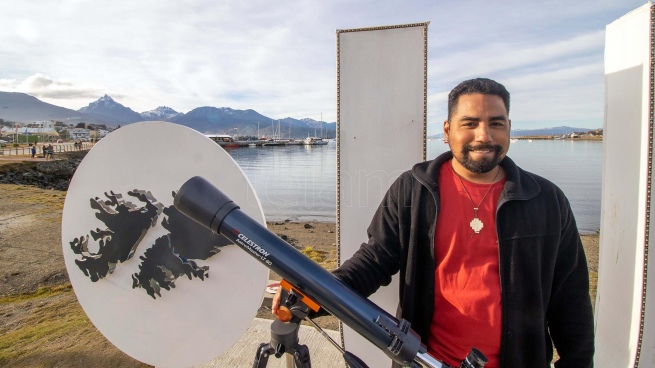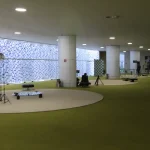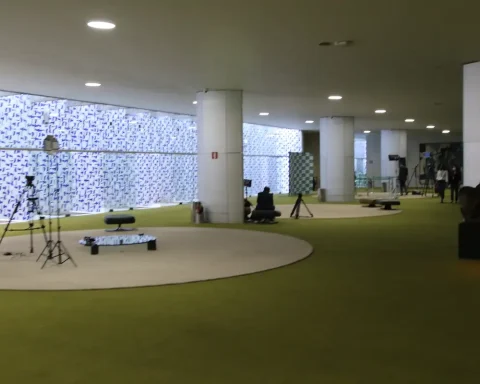Bryant Gonzalez Vasqueza backpacker and amateur astronomer who has been traveling the continent for five years, arrived in the city of ushuaia to observe the lunar eclipse that will occur this Sunday night and he valued the uniqueness of the southern skies: “from here the moon looks inverted,” he said in dialogue with Télam.
González is Venezuelan and in 2017 he began a trip from his country with 25 dollars in his pocket, a telescope and the dream of visiting the planetariums of South America, giving outreach talks and promoting astronomical observations.
“They always asked me how far you are going to go and I answered to the last that is possible, to Ushuaia. Arriving here represents the end of a great stage that began when he left Venezuela and continued with his tour of different countries such as Colombia, Ecuador, Peru, Bolivia and Argentina“, said this 31-year-old who trained in science as a self-taught person but took formal computer studies, English and French.

“The moon looks different here than at other latitudes. You could say it looks inverted, due to the perspective we have from the earth. The constellations don’t even look the same from the south of the planet as they do from the north,” he explained.
According to González, being located in such a southern latitude, Ushuaia should take advantage of that condition and offer an astronomical tourism alternative.
“The southern skies are a big draw for those coming from the northern hemisphere. I’m not talking about a scientific observatory, but the city could have its own planetarium and I’m sure this would attract a lot of tourists, even because of its proximity to Antarctica,” he analyzed.
Regarding tonight’s eclipse, González pointed out that its observation will depend on a series of factors, including the weather.
“If the sky is cloudy or if it is very cold, it would be complications for people to stay to see it. Then there is the issue of the schedule. The eclipse begins at 10:30 p.m. but it is estimated that the maximum effect will occur at 1 a.m. Monday,” he said.

For the observation, the astronomer will use a small refracting telescope but “good enough to be able to observe the moon. I also have a camera-to-cell phone adapter that allows me to take pictures and observe everything with good resolution,” he mentioned.
“Eclipses have helped scientists understand aspects of the workings of the universe and accurately calculate, for example, the distance between the sun and the earth. The moon is sometimes closer and sometimes further away, but it won’t always be there.” with us. In thousands of years it may be so far away that we will no longer be able to see it,” said the backpacker who will sit tonight and watch the sky from the coast of the Beagle Channel.
Bryant spreads the alternatives of travel and observations through the website and social networks of his “Astronomical Backpackers” project, although his experiences also gave rise to two books: “The Planetarist” and the science fiction novel “Migrants to Mars”.

“Now it’s time to go back to the north and evaluate if I continue to other continents or settle in one place. I’m also finishing a travel book. We’ll see where destiny takes us,” concluded the adventurer.


















